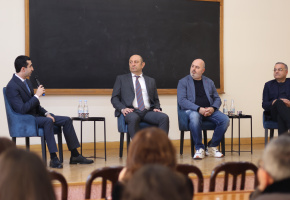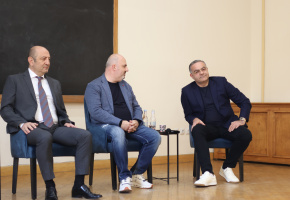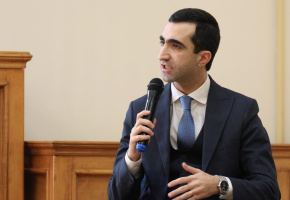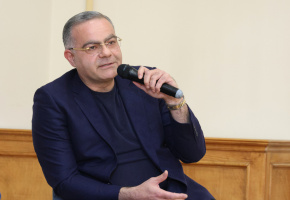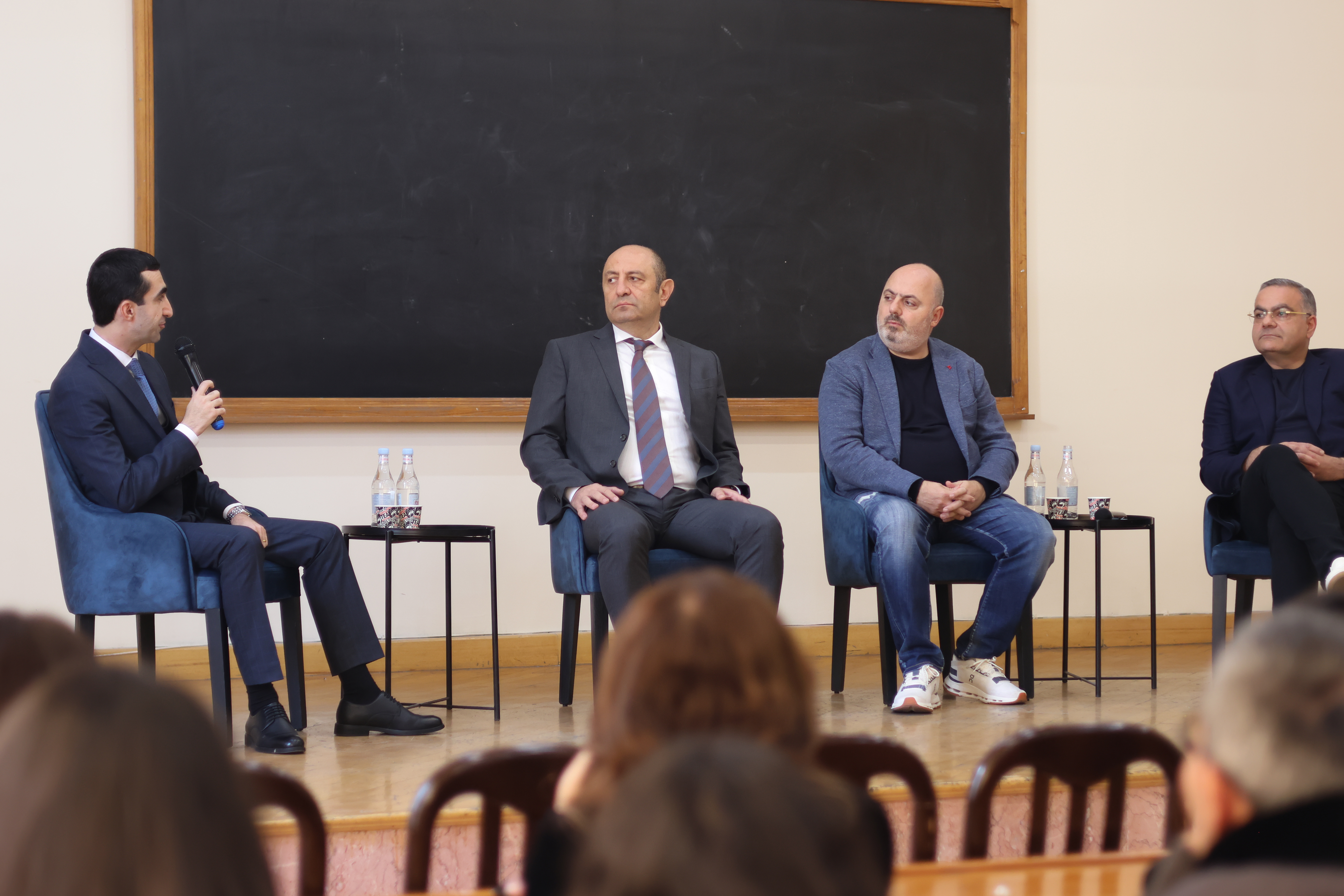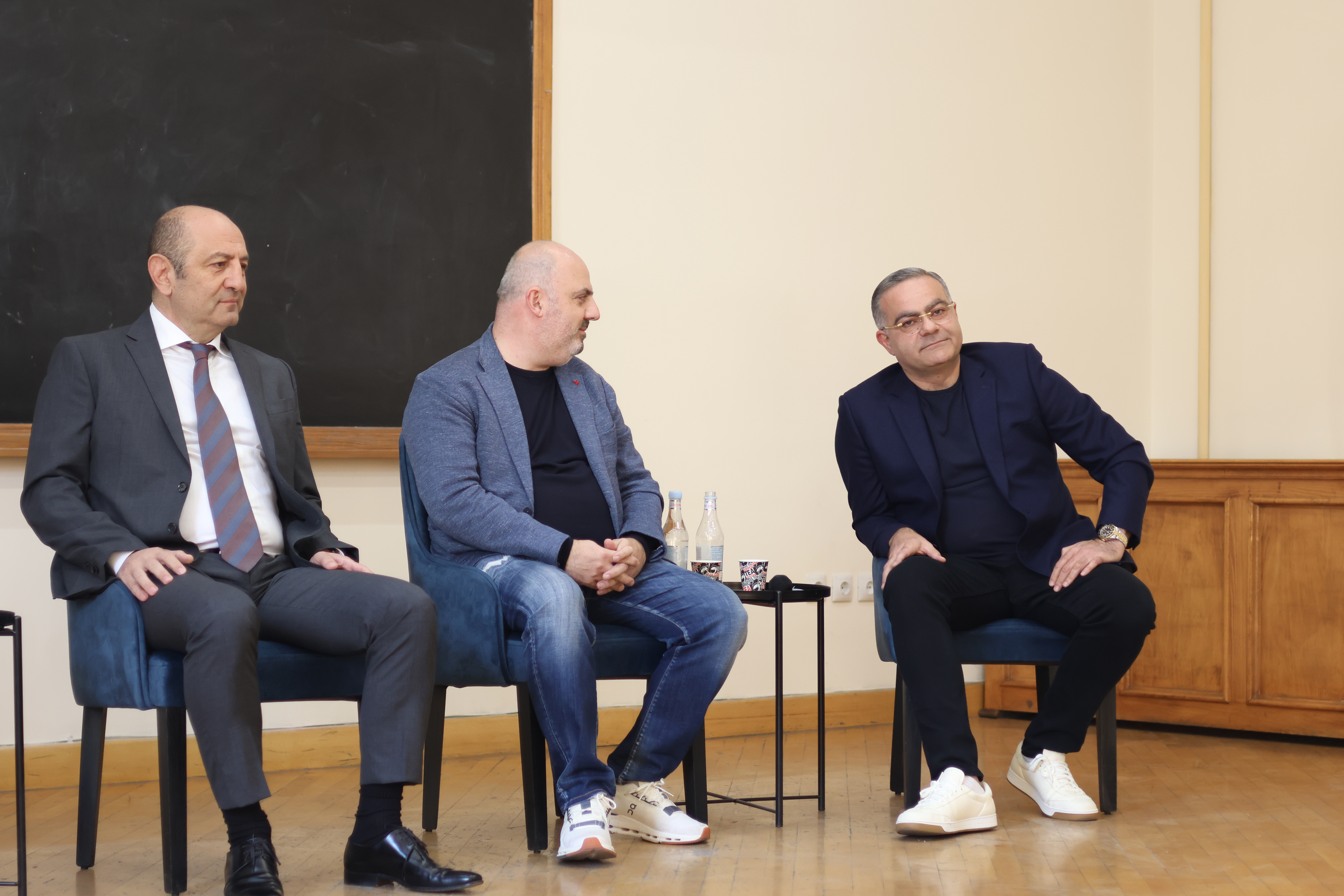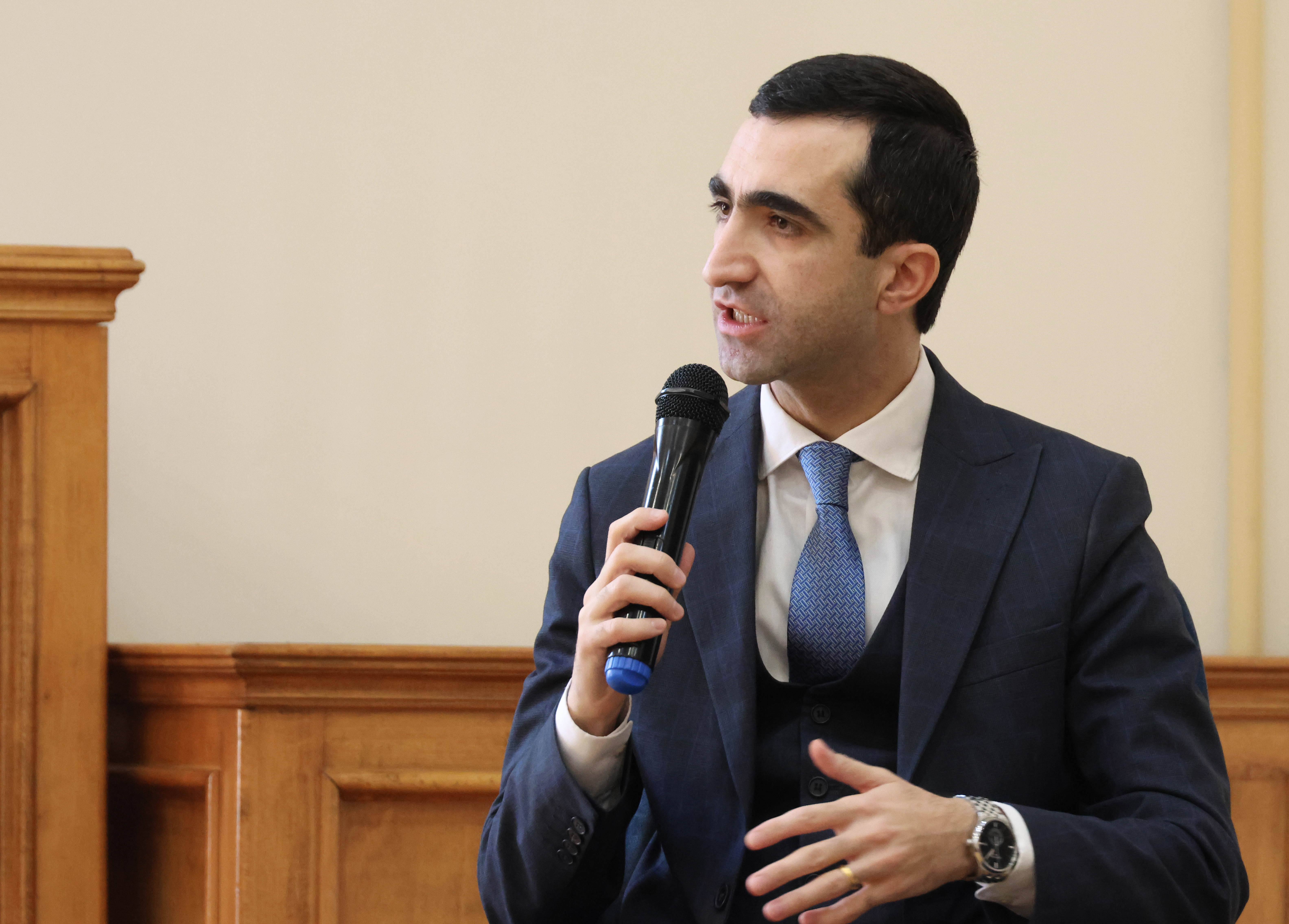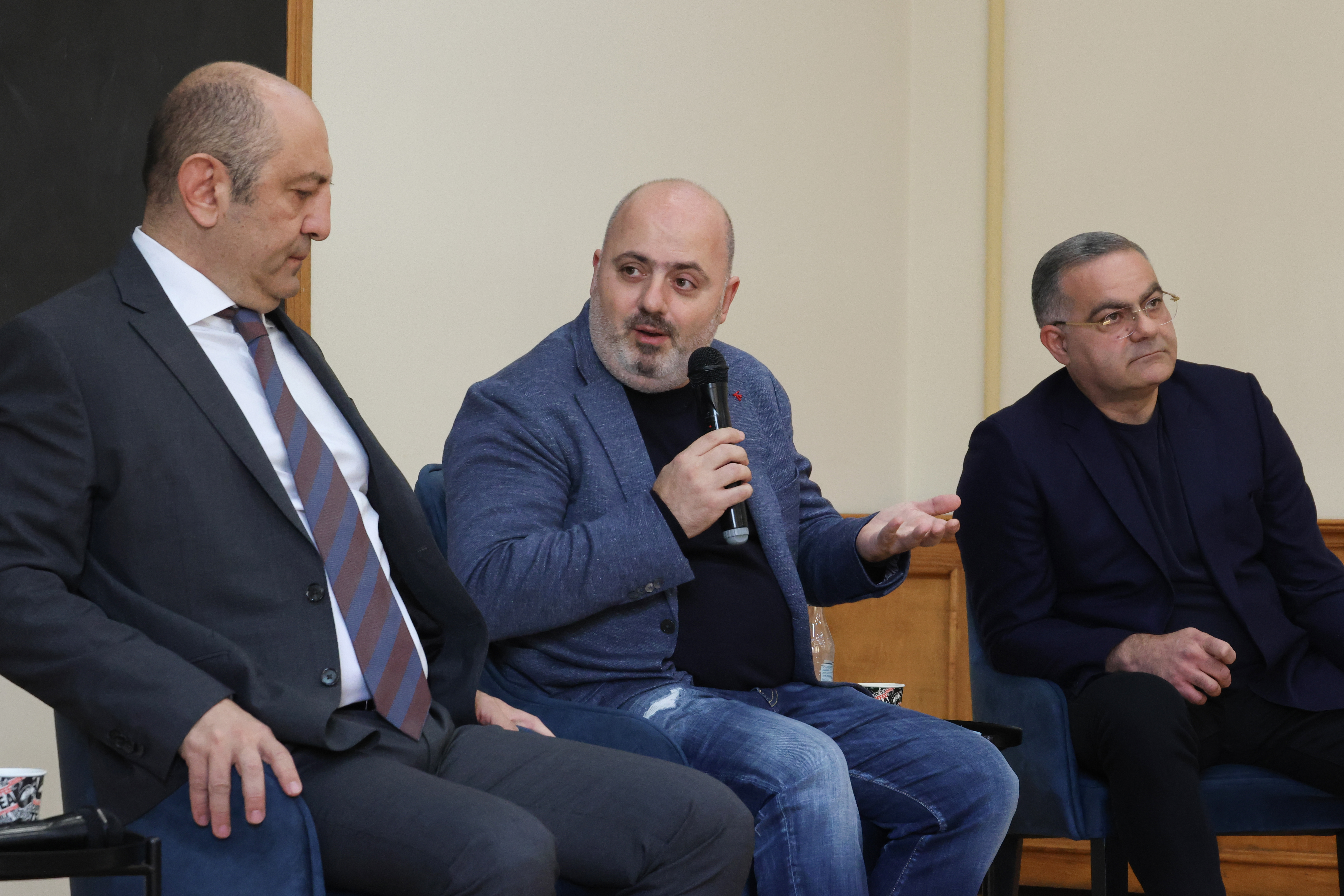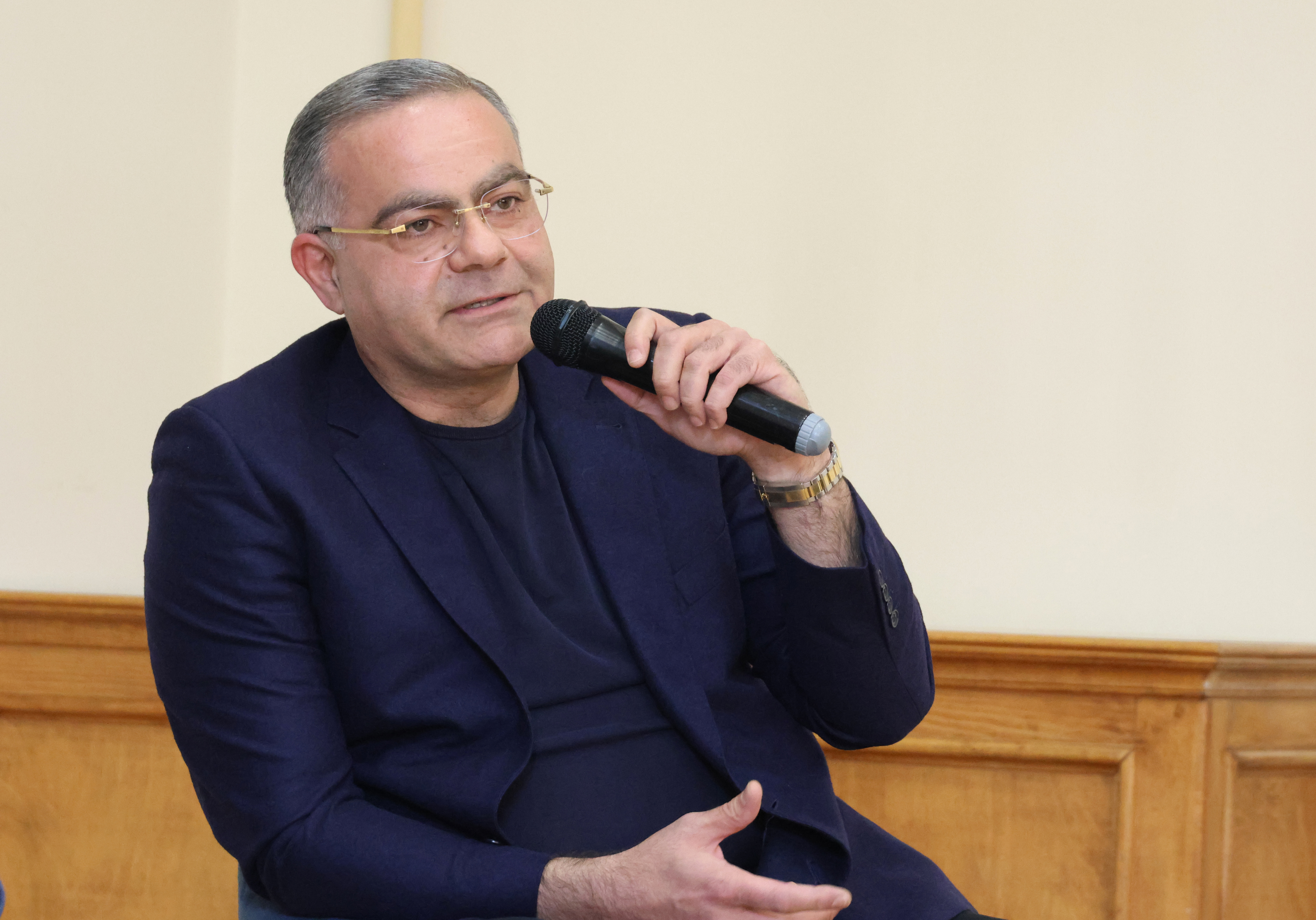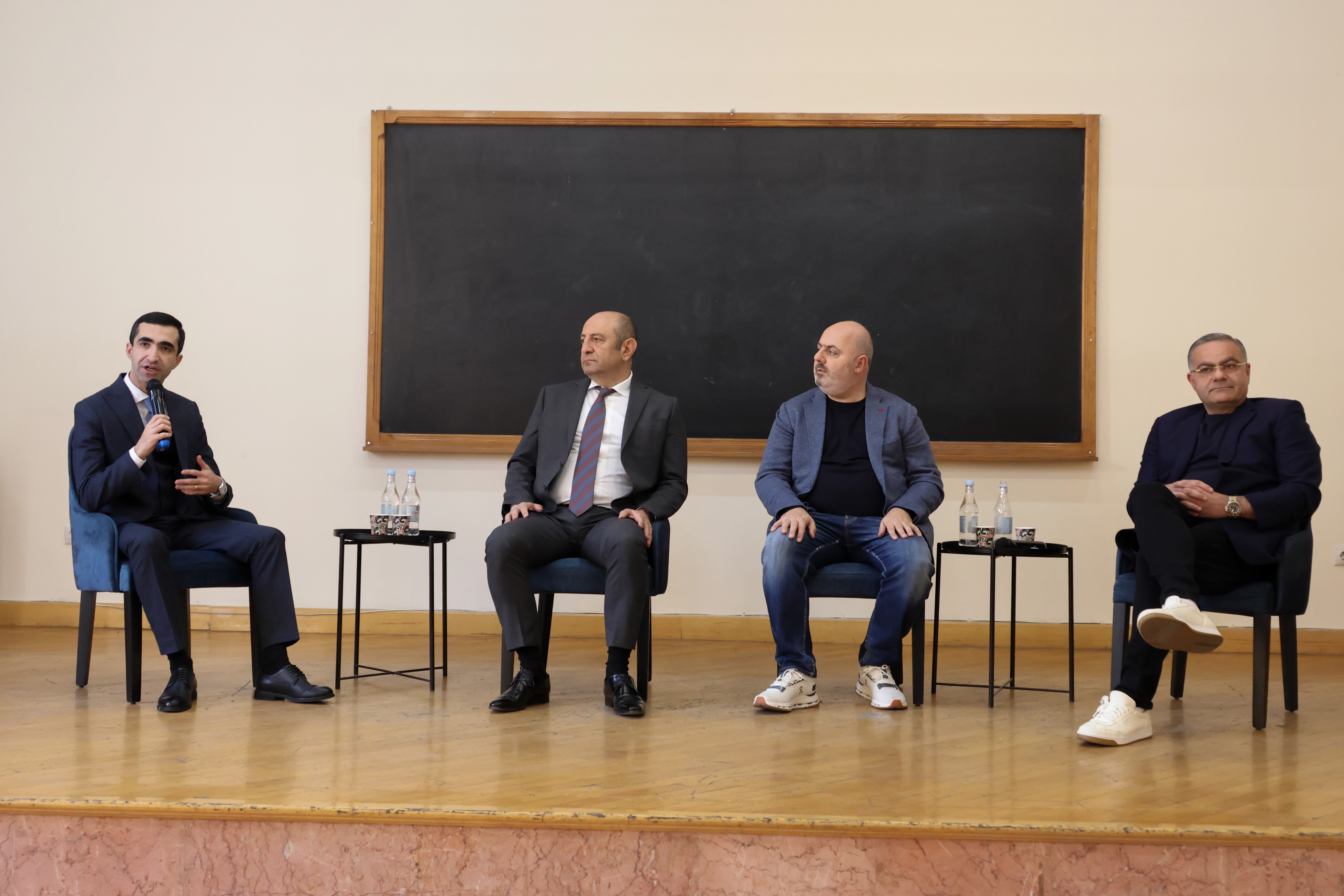November 21, 2025 | 11:15
Science
Education
Society
The development and challenges of public catering sector discussed at YSU
A sector-specific panel discussion titled "Issues and Development Trends of the Public Catering (HoReCa) Sector in the Republic of Armenia" was held at the Faculty of Economics and Management, Yerevan State University. During the discussion, founders and specialists from leading companies in the field presented how to effectively build, develop, and manage a business while taking into account modern trends and challenges.
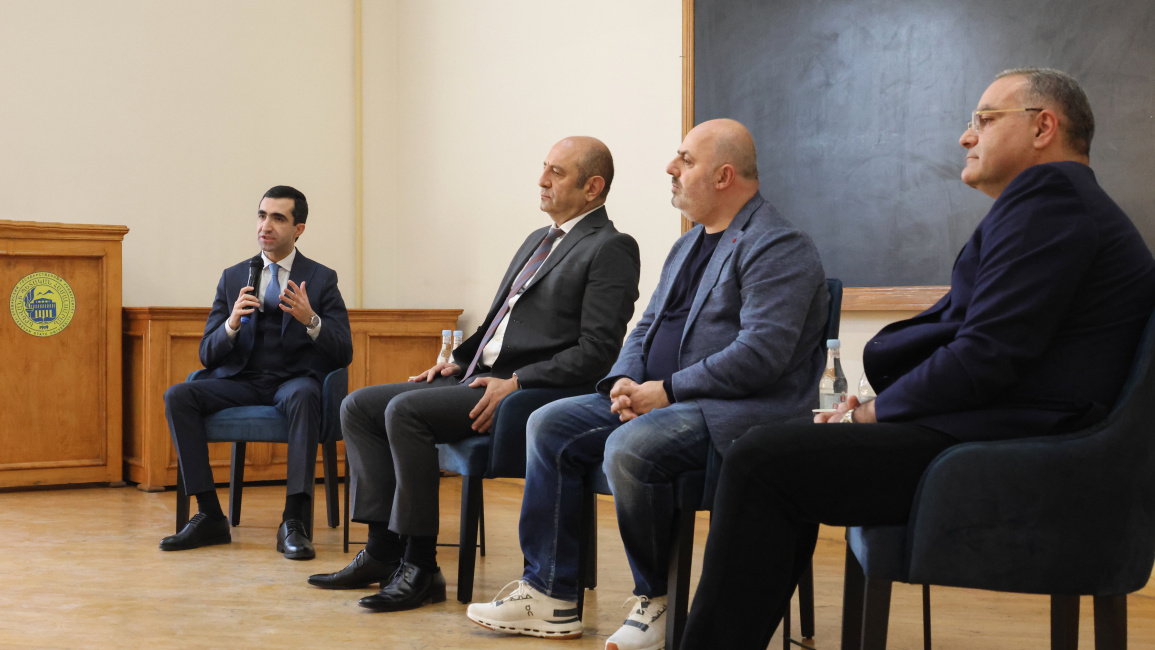
Karlen Khachatryan, Dean of the Faculty of Economics and Management at Yerevan State University, welcomed the participants of the discussion and noted that, as previously announced, the series of sectoral panel discussions continues, with meetings being held with experienced professionals in the field.
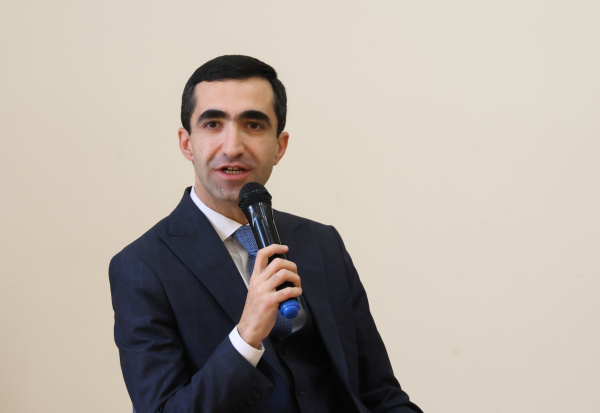
"The public catering sector is an interesting, dynamic, and quite stressful industry. It holds significant importance for the economic development of any country, yet at the same time, it is in a constant state of change, as consumer tastes, behaviors, and expectations evolve. Consequently, businesses must be able to adapt quickly and continuously revise their approaches," he emphasized.
Hovhannes Durgaryan, founder of Darget, speaking about the rapidly changing nature of the public catering sector, said, "Feeding people might seem like one of the most stable activities, but even our generation has witnessed how quickly the restaurant industry is transforming. It started with simple conditions—plastic chairs and kitchens run by homemakers—and today it is comparable to the developments in the technology sector. Although it may seem that significant changes are not taking place, in reality, the trends in this sector are enormous. One of the greatest challenges today is not falling behind global trends. This is not merely about updating menus; more important are the new management technologies, which are continuously evolving. The only constant remains the human resource, with its knowledge and willingness to learn."
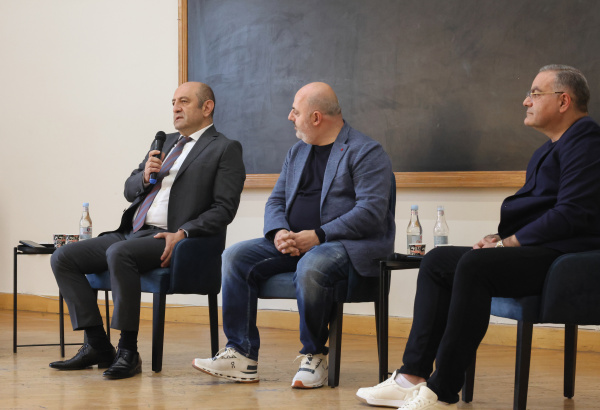
Arsen Hovhannisyan, founder of Asador, highlighted the issue of supply chain stability, also viewing it as an opportunity.
"In Armenia, supply chains can pose serious challenges, but at the same time, they can become a competitive advantage. Years ago, when we began importing seafood for our restaurant, it seemed almost unrealistic. Over time, competition increased, and we realized that if we could build the supply chain correctly, it would provide us with a significant advantage. Therefore, as future professionals, if you can find effective solutions for such challenges, you will place yourselves at the center of competition," he noted.
Tigran Yuzbashyan, founder of Karas, shared the path of their business development, emphasizing the importance of adaptation and change.

"We started in a small space with only 2–3 employees. My partner and I were cashiers, and we handled all the work ourselves. We introduced menus in a new way, implementing delivery systems, marketing solutions, color schemes, and promotions. The key to our success was boldly responding to these changes. It may seem easy to work in this sector, but in reality, it is complex, and many difficulties that are obvious to us are often invisible to beginners," he explained.
At the conclusion of the discussion, the speakers also shared the success stories of their businesses and answered questions from the attendees.
